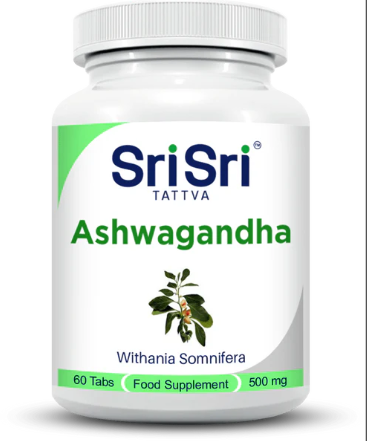How Ashwagandha Pills Can Help Reduce Stress and Anxiety Naturally
Stress and anxiety are two of the most common mental health issues people face in today’s fast-paced world. Whether it’s the pressures of work, personal challenges, or general life stressors, many individuals are on a constant quest for natural ways to manage their mental well-being. Among various natural remedies, ashwagandha pills have gained considerable attention for their stress-reducing properties. But how exactly do they work, and what does research say about their effectiveness? Let’s take a closer look at how ashwagandha can help reduce stress and anxiety naturally.
What is Ashwagandha?
Ashwagandha, scientifically known as Withania somnifera, is a medicinal herb that has been used for centuries in traditional Ayurvedic medicine. It is classified as an adaptogen, a substance that helps the body adapt to stress and restore balance. The herb is well-regarded for its potential to reduce stress, improve energy levels, and promote overall well-being. Ashwagandha pills, which contain concentrated doses of ashwagandha extract, offer a convenient way to incorporate this powerful herb into your daily routine.
How Ashwagandha Pills Reduce Stress and Anxiety
1. Balancing Cortisol Levels
One of the primary ways that ashwagandha pills help with stress is by regulating cortisol, the body’s main stress hormone. When you’re under stress, your body produces excess cortisol, which can lead to feelings of anxiety and tension. Over time, high cortisol levels can contribute to chronic stress and other health issues. Ashwagandha has been shown to lower cortisol levels significantly, helping to alleviate stress and anxiety naturally.
Several studies have confirmed this effect. In one clinical trial, individuals who took ashwagandha supplements experienced a 28% reduction in cortisol levels, leading to decreased stress and improved overall well-being. By balancing cortisol, ashwagandha pills can help your body handle stress more effectively, reducing its negative impact on your mental and physical health.
2. Improving Sleep Quality
Sleep and stress are deeply interconnected. High stress levels can lead to insomnia and poor sleep quality, which in turn exacerbate anxiety. Ashwagandha has been shown to promote better sleep by improving sleep quality and reducing sleep disturbances. Its ability to lower cortisol and promote relaxation plays a key role in improving sleep patterns, allowing your body to rest and recover more effectively.
In a study published in the Journal of Clinical Psychiatry, participants who took ashwagandha pills reported significant improvements in sleep quality, with many experiencing deeper and more restful sleep. By improving sleep, ashwagandha helps break the cycle of stress and poor rest, further supporting mental health and emotional balance.
3. Enhancing GABA Activity in the Brain
Gamma-aminobutyric acid (GABA) is a neurotransmitter that plays a crucial role in calming the brain and promoting relaxation. Many anti-anxiety medications work by increasing GABA activity, helping to reduce anxiety symptoms. Ashwagandha is believed to increase GABA activity in the brain, contributing to its calming effects.
By enhancing GABA’s natural calming influence, ashwagandha helps reduce nervous tension and anxiety. As a result, taking ashwagandha pills may help improve mood, reduce restlessness, and foster a sense of tranquility and calmness.
4. Supporting the Nervous System
Ashwagandha is often referred to as a “nervine,” meaning that it supports and strengthens the nervous system. By nourishing the nervous system, ashwagandha pills can help reduce the physical symptoms of anxiety, such as a racing heart, shallow breathing, and muscle tension. The herb’s calming effects extend to both the body and mind, making it an effective remedy for stress-induced physical discomfort.
Research Supporting Ashwagandha’s Benefits for Stress and Anxiety
Numerous scientific studies have highlighted the effectiveness of ashwagandha in reducing stress and anxiety. A study published in the Indian Journal of Psychological Medicine found that participants who took ashwagandha extract for 60 days experienced a significant reduction in stress and anxiety symptoms compared to those who took a placebo. The study also noted improved cognitive function and overall quality of life among those who used the herb.
Another clinical trial published in PLOS One revealed that ashwagandha supplementation resulted in a 44% reduction in anxiety scores among participants. This highlights the herb’s potential as a natural, non-habit-forming alternative to prescription anti-anxiety medications.
Conclusion
While ashwagandha offers many benefits, it is always beneficial to explore other natural supplements that support cognitive and emotional health. Bacopa supplements, for instance, are another powerful option known for their ability to enhance memory and cognitive function while reducing stress. Combining ashwagandha with bacopa could potentially offer a comprehensive approach to mental well-being.

